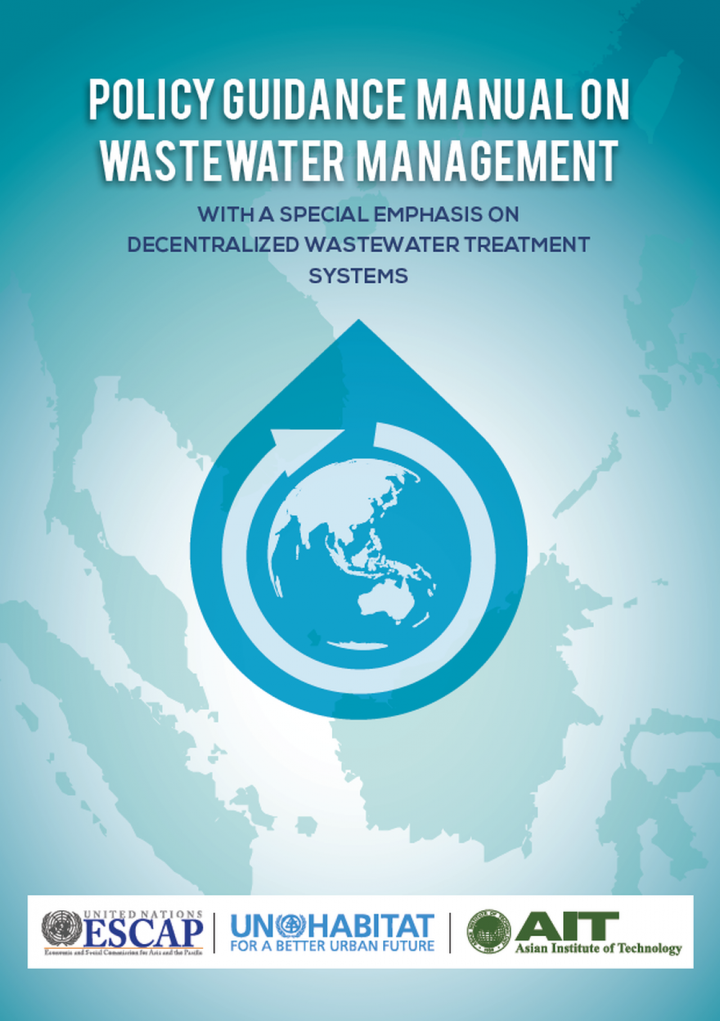Policy guidance manual on wastewater management with a special emphasis on decentralized wastewater treatment systems ESCAP, UN-Habitat, AIT (2015)
The Policy Guidance Manual on Wastewater Management with a special emphasis on Decentralised Wastewater Treatment Systems (DEWATS) highlights adequate policy and sustainable practices from the South-East Asia (SEA) region and worldwide. The primary objectives of the Policy Guidance Manual on DEWATS for SEA are three-fold:
(a) to guide national and local policy-makers and experts of SEA in enabling pro-poor policies, strategies, legal, institutional, social, environmental and financial frameworks for sustainable sanitation services;
(b) to advocate DEWATS to accelerate sustainable sanitation services in peri-urban areas and secondary towns along the Mekong corridor; and
(c) to suggest solutions and options for reforms aimed at sustainable delivery of sanitation services towards the achievement of the country’s Millennium Development Goals (MDGs) for sanitation, and to contribute to the post-2015 development agenda and SDG6 on Water and Sanitation.
Who will benefit from this policy guidance manual?
Policymakers and decision-makers on sanitation, other relevant policymaking authority in finance, public infrastructure or education related roles will generally benefit from this Manual. Researchers, who seek a brief overview of recent changes in sanitation policies in the Asia-Pacific region, along with international organisations that engage in capacity building or infrastructure development in order to accelerate decentralised solutions for
sustainable sanitation services in the region, will also find this Manual useful.
Bibliographic information
ESCAP, UN-Habitat, AIT (2015). Policy guidance manual on wastewater management with a special emphasis on decentralized wastewater treatment systems United Nations Economic and Social Commission for Asia and the Pacific (ESCAP), United Nations Human Settlements Programme (UN-Habitat) and Asian Institute of Technology (AIT), Bangkok, Thailand
Filter / Tags
Operation, maintenance and sustainable services (WG10)Biogas systems Guidelines and manualsEnglish
Downloads

Published in: 2015
Pages: 144
Publisher:
United Nations Economic and Social Commission for Asia and the Pacific (ESCAP), United Nations Human Settlements Programme (UN-Habitat) and Asian Institute of Technology (AIT), Bangkok, Thailand
Author(s):
ESCAP, UN-Habitat, AIT
Uploaded by:
AIT
Asian Institute of Technology
